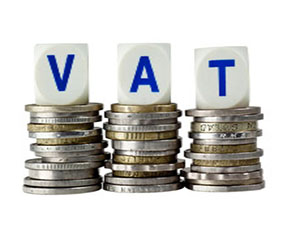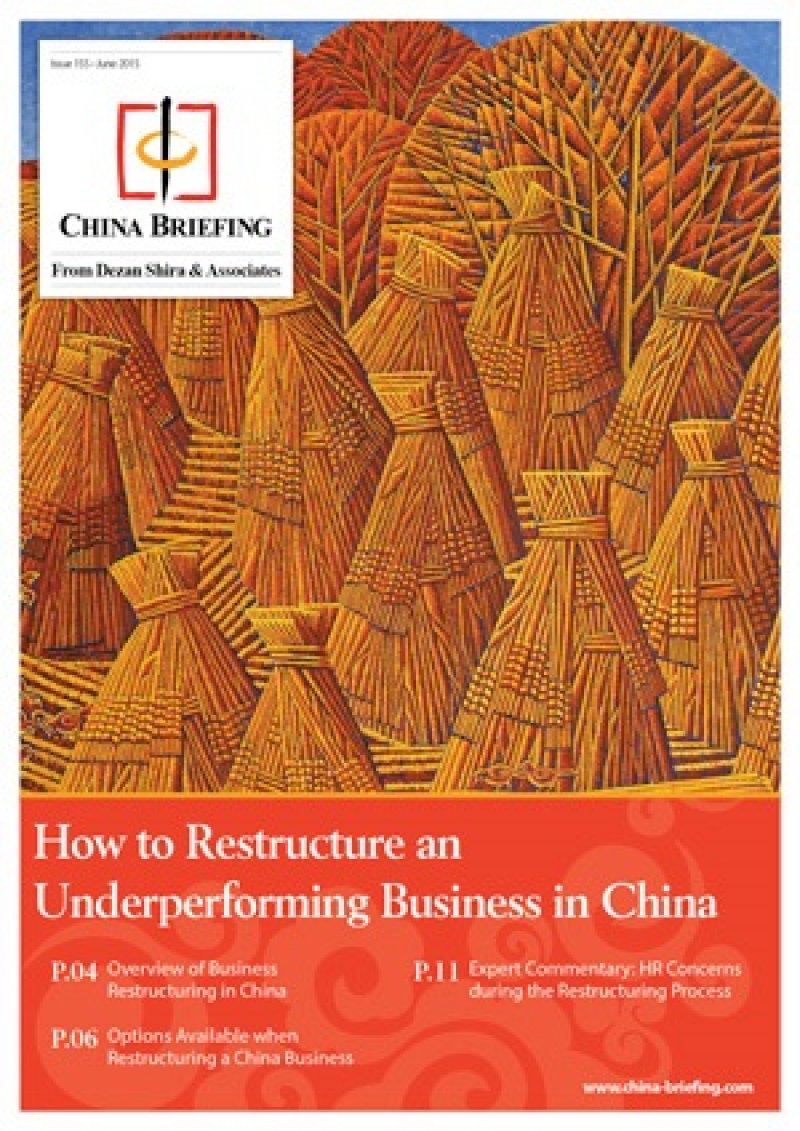Hard Knock Life: China’s Life Services Industry Undergoes VAT Reform
 By Dezan Shira & Associates
By Dezan Shira & Associates
Editor: Jake Liddle and Rainy Yao
On March 7, China’s Minister of Finance Lou Jiwei announced that the country’s value-added tax (VAT) reform, which will fully replace business tax (BT), is to be implemented nationally across all industries on May 1, 2016. Following his announcement, the Tax Bureau and the Ministry of Finance jointly released the Caishui [2016] No 36 to state that the VAT reform will be expanded to include three crucial sectors: real estate/construction, finance, and life services. The reform is poised to fundamentally alter the accounting systems of small and medium sized enterprises operating in China, and is expected to reduce the tax burden on companies by eliminating the duplicate taxation brought on by the current coexistence of the BT and VAT systems.
Life services, which have always been considered too broad and opaque in scope and definition, are one of many industries that will be heavily affected by the reform. Life services are finally covered by VAT and will receive substantial tax benefits during the transition period. The notice explicitly clarifies that the life services industry covers various services that satisfy day-to-day living needs of urban and rural residents.
 RELATED: Tax and Compliance Services from Dezan Shira & Associates
RELATED: Tax and Compliance Services from Dezan Shira & Associates
The following are included under the umbrella term of “life services”:
- Cultural and sports services
- Cultural services are services provided to satisfy cultural living needs, covering areas such as literature, arts, culture, ancient heritage, religion, sightseeing, etc.
- Sports services are business activities of organizing and hosting competitions, activities, training, management, etc. pertaining to sports.
- Education and medical services
- Education services are business activities providing academic education services, non-academic education services (lower education), and educational support services.
- Medical services are the provision of services in medical examination, diagnosis, treatment, rehabilitation, prevention, healthcare, midwifery, family planning, vaccination services, etc., as well as provision of drugs, medical materials and appliances, ambulances, ward accommodation, and meals in relation to these services.
- Tourism and entertainment services
- Tourism services are the business activities of organizing and arranging transportation, tour accommodation, food & beverage, shopping, entertainment, etc.
- Entertainment services are the business of providing premises and services concurrently for entertainment activities.
- Food & beverage and accommodation services
- Food & beverage services are the business activities of supplying consumption services for consumers through production of food and beverages and provision of premises.
- Accommodation services are the activities of providing accommodation premises and support services, etc., including hotels, motels, hostels, resorts, etc.
- Resident day-to-day services
- Resident day-to-day services are the services provided mainly to satisfy the day-to-day living needs of residents and their families, including services such as funeral services, nursery care services, and spa & bathhouse services.
BT Scheme vs. VAT Scheme
Under the current BT scheme, most services are subject to a five percent tax rate, whereas under the new VAT scheme, general VAT taxpayers will be subject to a six percent tax rate. For small-scale taxpayers, a three percent VAT levy rate will apply. While the new VAT rates will relieve a huge tax burden on small-scale taxpayers, they might place additional stress upon general VAT taxpayers.

As discussed in our previous article, there are two methods of VAT calculation: the general calculation method and the simplified calculation method. Generally, the former applies to general taxpayers and the latter applies to small-scale taxpayers. Here, we provide two examples that show investors how the new rates will have different impacts on former BT taxpayers depending on their annual income and taxpayer status:
Example 1: Restaurant A is a business taxpayer with an annual income of RMB 500,000 (BT payable = RMB 500,000 × 5% = RMB 25,000). After the VAT reform, Restaurant A will become a small-scale taxpayer, and is thus subject to the three percent VAT rate and a simplified tax calculation method:
VAT payable = RMB 500,000 × 3% = RMB 15,000
Example 2: Company A’s annual taxable income (RMB 10 million) exceeds the ceiling set for small-scale taxpayers and therefore turns into a general VAT taxpayer after the reform. In this case, Company A’s tax payable will be calculated based on the general calculation method and will result in a larger amount of tax payments. The comparison of their tax amount payable is listed below:
BT payable = RMB 10 million × 5% = RMB 500,000
VAT payable = (RMB 10 million ÷ (1+6%) x 6%) = RMB 566,037
Note: assuming that there is no deduction to the input VAT amount
Exceptions and VAT Exempted Services
Notably, as part of the Chinese government’s policy to boost its service sector, certain life services will be exempt from VAT payment within the transition period. These include:
- Child daycare services
- Nursery care services
- Retirement services
- Disability welfare institutions
- Services provided by disabled persons
- Matchmaking services
- Funeral services
- Medical services
- Academic and educational services
- Services provided by student work-study programs
- Income derived from housekeeping services provided by housekeeping personnel of a housekeeping services enterprise.
Influence
Although it introduces tax reductions to a certain extent, the VAT reform may also impair the competitiveness of small companies. Larger companies engaged in the life services sector who are currently BT taxpayers will soon be able to issue “special VAT invoices“, while smaller companies will not. In practice, buyers prefer companies that offer these special invoices, as it allows them to deduct input VAT and reduce tax payments. This indicates less room for the future development of small-scale companies in the life services industry. According to the new notice, these small companies may seek help from the tax bureau in the issuance of special VAT invoices, but the detailed procedure and time required remains unclear.
For further information on how the new VAT reform will impact your business in China, please contact one of our experts here.
|
Asia Briefing Ltd. is a subsidiary of Dezan Shira & Associates. Dezan Shira is a specialist foreign direct investment practice, providing corporate establishment, business advisory, tax advisory and compliance, accounting, payroll, due diligence and financial review services to multinationals investing in China, Hong Kong, India, Vietnam, Singapore and the rest of ASEAN. For further information, please email china@dezshira.com or visit www.dezshira.com. Stay up to date with the latest business and investment trends in Asia by subscribing to our complimentary update service featuring news, commentary and regulatory insight. |

 Tax, Accounting, and Audit in China 2016
Tax, Accounting, and Audit in China 2016
This edition of Tax, Accounting, and Audit in China, updated for 2016, offers a comprehensive overview of the major taxes that foreign investors are likely to encounter when establishing or operating a business in China, as well as other tax-relevant obligations. This concise, detailed, yet pragmatic guide is ideal for CFOs, compliance officers and heads of accounting who must navigate the complex tax and accounting landscape in China in order to effectively manage and strategically plan their China-based operations.
How to Restructure an Underperforming Business in China
In this issue of China Briefing magazine, we explore the options that are available to foreign firms looking to restructure or close their operations in China. We begin with an overview of what restructuring an unprofitable business in China might entail, and then take an in-depth look at the way in which a foreign company can go about the restructuring process. Finally, we highlight some of the key HR concerns associated with restructuring a China business.
Managing Your Accounting and Bookkeeping in China
In this issue of China Briefing, we discuss the difference between the International Financial Reporting Standards, and the accounting standards mandated by China’s Ministry of Finance. We also pay special attention to the role of foreign currency in accounting, both in remitting funds, and conversion. In an interview with Jenny Liao, Dezan Shira & Associates’ Senior Manager of Corporate Accounting Services in Shanghai, we outline some of the pros and cons of outsourcing one’s accounting function.
- Previous Article Service Sector Dominates as FDI into China Continues to Rise in 2016
- Next Article Neues Doppelbesteuerungsabkommen zwischen Deutschland und China











